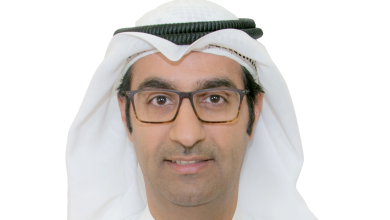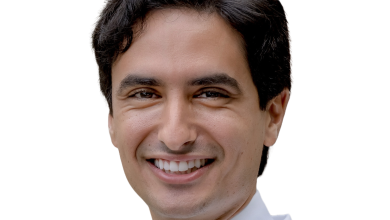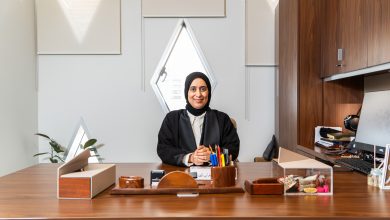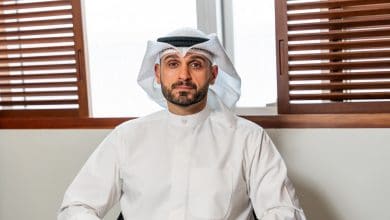Making Waves: The Marine Modelling Scientist Recognized for his Award-Winning Research
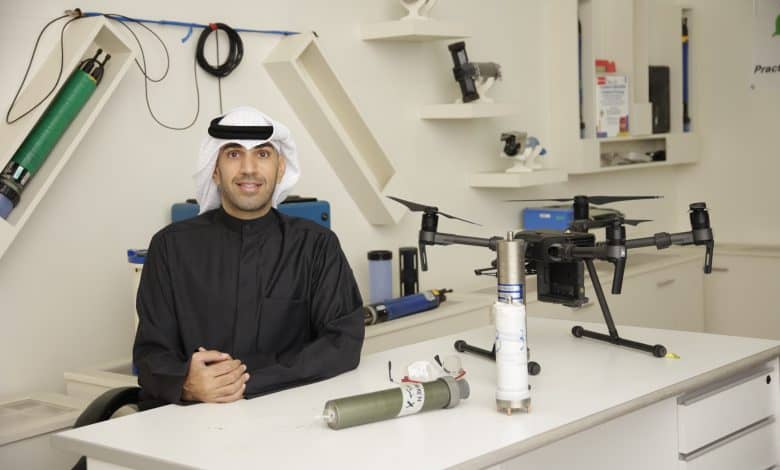
As climate change continues to dominate the headlines, the work of scientists and researchers to understand this phenomenon is becoming ever more crucial. The climate may seem unpredictable to many of us, but research scientists working in the field of marine modelling are uncovering ways for us to better understand the oceans, and our impact upon them.
These scientists include Yousef Alosairi , who has now been awarded the 2022 Jaber Al-Ahmad Award for Young Researchers, in the field of engineering sciences, from the Kuwait Foundation of the Advancement of Sciences (KFAS). Alosairi’s career has been shaped by the oceans, albeit on different sides of the world. He completed his higher education at Cardiff University, gaining a bachelor’s in Civil Engineering in 2006, followed by a master’s in Water Engineering in 2007. This was followed by his doctorate in hydro-environmental engineering, completed in 2011.
His doctorate research involved the hydrodynamics and water quality modelling of a range of marine processes, focusing on the Arabian Gulf and Kuwait Bay. Hydrodynamics modelling helps scientists understand the movement of water and can be used to simulate marine processes under different conditions. This helps scientists gain a deeper understanding of the behavior of our seas. His doctorate research was published in highly-reputed peer-reviewed journals, and presented at conferences for the International Association for Hydro-Environmental Research (IAHR).
In 2012, Alosairi joined the Kuwait Institute for Scientific Research (KISR) and is now based in the Coastal Management Program at the Environment and Life Sciences Center at KISR. Alosairi’s work as a research scientist and head of the coastal numerical modelling unit includes a wide range of responsibilities, from maintaining and operating the forecasting numerical model for Kuwait, to leading funded research commissioned by various national instutions, and working as the principal investigator across a wide range of research projects.
During his time at KISR, Alosairi’s research moved into monitoring specific issues that affect the seas around Kuwait. This includes hypoxia: when algal blooms reduce the amount of oxygen in the water. This can lead to several environmental impacts, for example, dead zones, fish kills, decreased diversity, and threats to commercial fisheries. “As a semi-enclosed sea, in Kuwait Bay, the oxygen gets consumed very fast during hot summers,” said Alosairi.
As a result, many fish die within these dead zones and can then be transported to the shoreline. Through modelling the areas usually affected by hypoxia, plus collecting samples to study the phenomena, Alosairi built up a detailed picture of when it usually occurred.
“Now we’ve reached a level where we can forecast, meaning we know when this will happen in the future, let’s say, two days ahead,” he said. This information can now be used by environmental entities like the Environmental Protection Agency, so they can prepare their teams to collect samples, and warn the public.
Another project with a high impact on policymaking in Kuwait was Alosairi’s research into the optimal length for emergency outfalls along the Kuwait coastline. “When a pollutant is being discharged from an outfall during emergency conditions, the outfall pipe, which lies on the coast, should have a specific design,” said Alosairi. However, before his research, there was no design specification for this essential infrastructure. Alosairi modelled a range of pollutants to discover the best length for these outfalls along the coastline. “This helped policymaking regulations in Kuwait because each area of coastline has a specific depth, a specific shoreline, and specific dynamic conditions like water speed and tidal range,” he said.
While modelling marine processes might sound like it involves a lot of laboratory-based research, it also requires a significant amount of time spent collecting data at sea. “You need this data to validate your models to say that the computations of the model are correct,” said Alosairi. This process is particularly essential when hindcasting. Alosairi and his research team know that a specific phenomenon, like hypoxia, will occur during specific times of the year so, they deploy their instruments to collect data at these times. “Then we run our models to hindcast this and try to compare our data with the data that we already collected, this helps in obtaining detailed information per, during, and post the event” said Alosairi.
A significant career moment came for Alosairi when he was involved in recording the world record for sea surface temperatures, with a reading of 37.6 °C recorded in Kuwait Bay in 2020. This garnered international attention, especially when high temperatures were recorded in other parts of the world, including Florida in the United States. From this, it was natural that his research also extended to another effect of climate change: rising sea levels. Up until now, there has been no station within the Arabian Gulf for recording changes to sea levels due to climate change. Now, thanks to Alosairi, a new station has been installed.
While the achievements of his career to date are numerous, Alosairi said that one of the most rewarding has been deploying this station, as part of the Global Sea Level Observing System (GLOSS), which was established in 1985. While it took Alosairi two years to achieve all the paperwork and permissions required to get the monitoring station up and running, it has recently been installed at The Scientific Center in Kuwait (TSC), a subsidiary of KFAS. Projects like this allow Alosairi to not only “give back to the scientific community, contributing to the global aspect of our nature and the sea,” but also to raise awareness and educate younger generations. The location chosen means that “younger generations will get the chance to visit the station and learn more about the climate,” said Alosairi.
One of the biggest challenges of his career has been working with the sea. “Dealing with the sea is absolutely difficult,” said Alosairi. “In many cases, I had to cancel a field trip because of very rough wave conditions, and in some other cases, visibility gets too low, suddenly you cannot really see the sea and it gets dangerous to navigate.” He said that the extreme heat when working during the summer period can be incredibly challenging, and something that not all researchers can tolerate.
Alosairi also said that his work, and this award, would not have been possible without a dedicated team of researchers including Nada Alsulaiman, Dana Al-Houti, Tanuspong Pokavanich, and Alanoud Al-Ragum. With an extensive publication record including over 18 papers in scientific journals, the impact of Alosairi’s research is continuing to make waves, both in Kuwait and across the world.
By Emma Stenhouse

